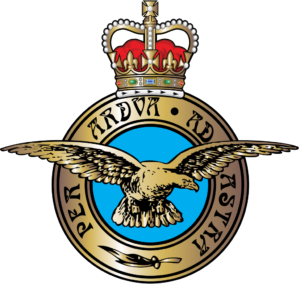Today is Remembrance Sunday where the contributions of British and Commonwealth military and civilian servicemen and women involved in both World Wars and indeed all conflicts are commemorated. [1] On this day some one-hundred-and-two years ago at 11 O’clock, in a railway carriage in Northern France, the First World War came to end. The War extracted a heavy human toll of around forty-million lives,[2] some 2,738 of which were men fighting on the last day.[3]
Naturally, the outbreak of war in 1914 brought about the quick imposition of new laws onto the British public. The most significant of which was the Defence of the Realm Act 1914, designed ‘for securing public safety’;[4] granting the British Government wide-ranging powers.[5] According to the Imperial War Museum, it regulated “virtually every aspect of the British home front and was expanded as the war went on.”[6] Although many of these restrictions – such as heavy censorship and disallowing the movement of foreign nationals from enemy states – were to be expected in wartime, others appeared quite trivial.
Pubs and alcohol
Among these restrictions came severe inroads into the operation of pubs and general consumption of alcohol – making today’s COVID-19 measures seem far from stringent. This included the widespread watering down of beer, making it illegal to buy a round of drinks – it was even an offence to serve a soldier in uniform (unless he was on sick leave).[7] Nevertheless, taxes on alcohol (and tobacco) levied £75 million in 1913-14 alone.[8]
By 1915, Prime Minister David Lloyd George stated the aim of keeping workers sober and hangover-free in order to maximise the production of munitions.[9] To achieve this, the opening hours of pubs were restricted to between midday-3pm and 6:30pm–9:30pm. Interestingly, the requirement for an afternoon gap stayed in place until the Licensing Act 1988 (now controlled by the Licensing Act 2003).
As a result, WWI Homefront Britain birthed the ‘lock-in’ – the theory being once the doors are locked, the pub ceases to be and becomes a private party. As such, money is put behind the bar prior to official closing time and drinks are redeemed throughout the lock-in, so technically no drinks are sold after closing time. This is certainly a ‘letter of the law’ approach. Since there has been no statute expressly forbidding lock-ins (only COVID-19 restrictions on opening hours) it is presumably legal, per the basic principles of constitutional law – in the words of Lord Camden “if it is law, it will be found in our books. If it not to be found there, it is not law.” [10]
Although these restrictions were labelled by some as “draconian”,[11] since this result was the exact contrary of Parliament’s intention: preferring earlier drinking hours as to ‘sober up’ sooner (as to begin munition productions), perhaps it better demonstrates the impact of over-legislating insofar as not trusting the public’s common sense.[12] In Psychology, this phenomenon is known as reactance. In a Cavalier (and slightly flippant) reading, this is aptly surmised by American General Douglas MacArthur, that: “rules are mostly made to be broken”.[13]
Taxi-cabs
Another curious restriction brought about by the Defence of the Realm Act 1914 came in 1916: Londoners were restricted from whistling for a Taxi between 10pm and 7am. The rationale for this was that doing so may be mistaken for an air raid warning.[14] Although this may seem extreme, by the end of the war some 1,500 people were injured because of German air raids – whilst 3,400 were injured.[15]

A seemingly extreme aspect of this was that it technically could incur the death penalty. Whilst the Act itself did not refer to the death penalty, it subjected civilians to a military court-martial – where the maximum penalty was death.[16] Nevertheless, this attracted much criticism.[17]
To sign off, perhaps the triviality of these restrictions echo the Revisionist idea [18] – that “lions led by donkeys” extends to the Politicians (as well as the Generals), but with regards to domestic law as well as military command.
References
[1] https://www.gov.uk/government/news/remembrance-sunday-2018-find-out-how-you-can-join-the-commemorations-on-sunday-11-november
[2] https://www.britannica.com/event/World-War-I/Killed-wounded-and-missing
[3] Persico, Joseph E. (2005). 11th Month, 11th Day, 11th Hour (illustrated, reprint ed.). London: Random House. ISBN 978-0-09-944539-5. OCLC 224671506.
[4] https://www.iwm.org.uk/history/10-surprising-laws-passed-during-the-first-world-war
[5] https://www.nationalarchives.gov.uk/education/britain1906to1918/pdf/gallery-5-civilians-case-studies.pdf
[6] https://www.iwm.org.uk/history/10-surprising-laws-passed-during-the-first-world-war
[7] http://salfordonline.com/17145-17145.html
[8] Peter Dewey, War and progress: Britain 1914–1945 (1997) pp 28–31.
[9] https://www.morningadvertiser.co.uk/Article/2019/02/12/What-did-pubs-do-during-World-War-1-and-World-War-2
[10] i.e. If there is no law against it, it is legal; Entick v Carrington
[11] http://salfordonline.com/17145-17145.html
[12] https://blogs.lse.ac.uk/covid19/2020/07/01/what-is-law-and-what-is-guidance-the-risks-of-depending-on-british-common-sense/
[13] https://www.goodreads.com/quotes/458399-rules-are-mostly-made-to-be-broken-and-are-too#:~:text=Quotes%20%3E%20Quotable%20Quote-,%E2%80%9CRules%20are%20mostly%20made%20to%20be%20broken%20and%20are%20too,the%20lazy%20to%20hide%20behind%E2%80%9D
[14] https://www.thegazette.co.uk/all-notices/content/217
[15] https://www.bbc.co.uk/bitesize/topics/zqhyb9q/articles/zmqjnrd
[16]https://web.archive.org/web/20101006154127/http://www.nationalarchives.gov.uk/catalogue/RdLeaflet.asp?sLeafletID=40&j=1
[17] http://hansard.millbanksystems.com/commons/1940/may/22/treachery-bill
[18] https://www.nationalarchives.gov.uk/education/greatwar/g4/